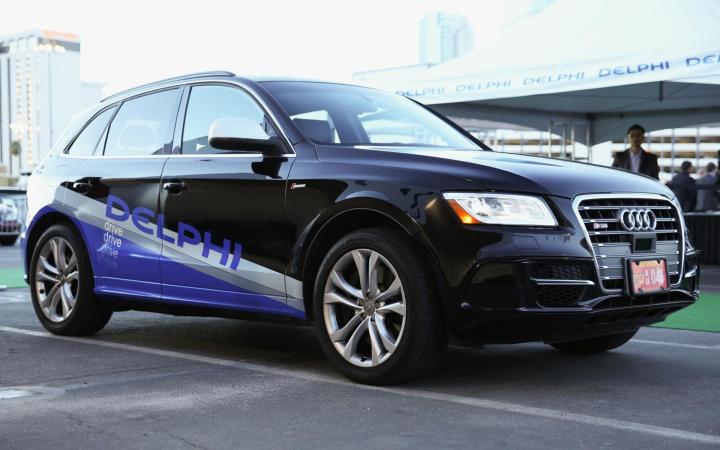
According to a Reuters report, a Delphi Automotive car and a Google self-driving car successfully managed to avoid one another when they came into close quarters with one another in Palo Alto, California. As per reports, the Google vehicle, a Lexus RX400h, cut off the Delphi Audi Q5 just as it was preparing to change lanes. Unfazed, the Delphi car “took appropriate action,” according to John Absmeier, director of Delphi’s Silicon Valley lab and the company’s automated driving program, who happened to be along for the ride.
Despite the great press event that would have resulted from a more dramatic encounter, both Google and Delphi representatives noted that there was truly nothing remarkable about the meeting of the two competing cars, and that they treated one another with the same general apathy that can be expected from, well, robots. Clarifying earlier reports that suggested that there were more fireworks at play, a Delphi spokeswoman noted that the Audi behaved “admirably,” and Google emphasized that there was no “near miss” in the meeting — in fact, the cars were certainly never in danger of being involved in an accident with one another.
Of course, Google has noted previously that any accidents in which their self-driving cars have been involved were the results of human error, meaning that the meeting of two such infallible pieces of technology would have been the safest scenario on the road. They were right this time, but who knows, the next meeting of rivals could be the next installment of the Transformers franchise.
Editors' Recommendations
- Cruise autonomous vehicle drives over woman just after she was hit by another car
- Officers confused as they pull over an empty self-driving car
- We now know what the self-driving Apple Car might look like
- Watch San Franciscans take a ride in Waymo’s self-driving car
- The future of transportation: Self-driving cars? Try self-driving everything


